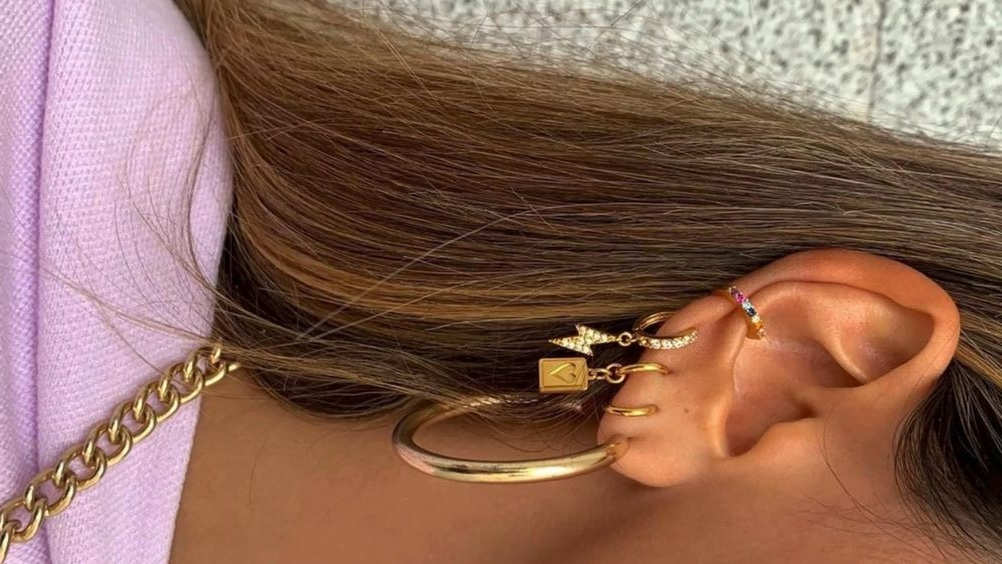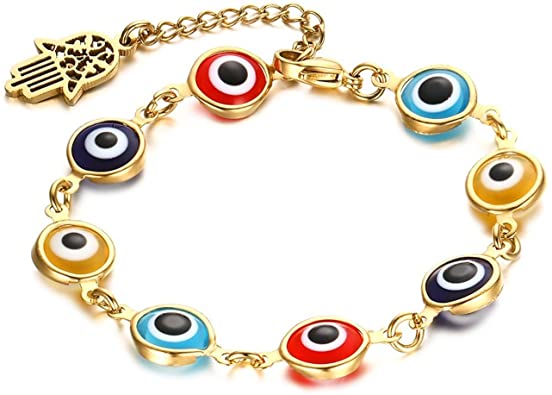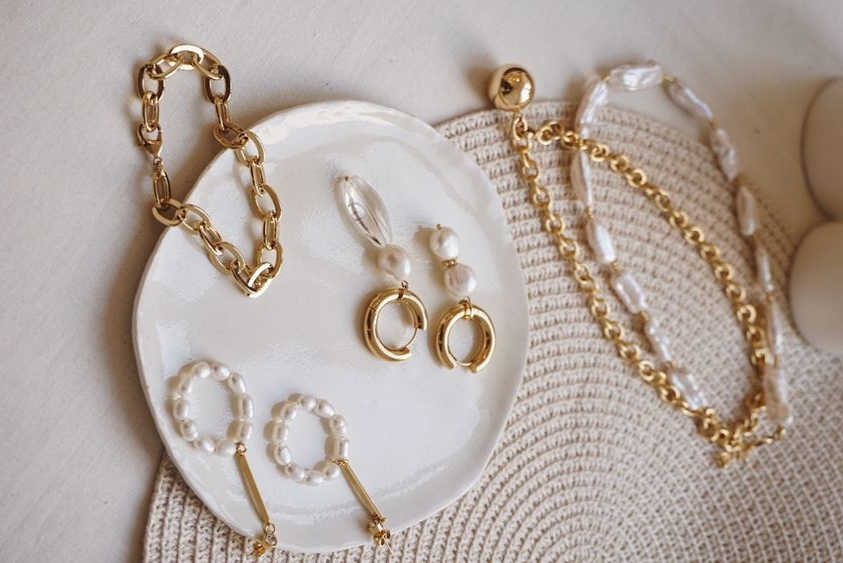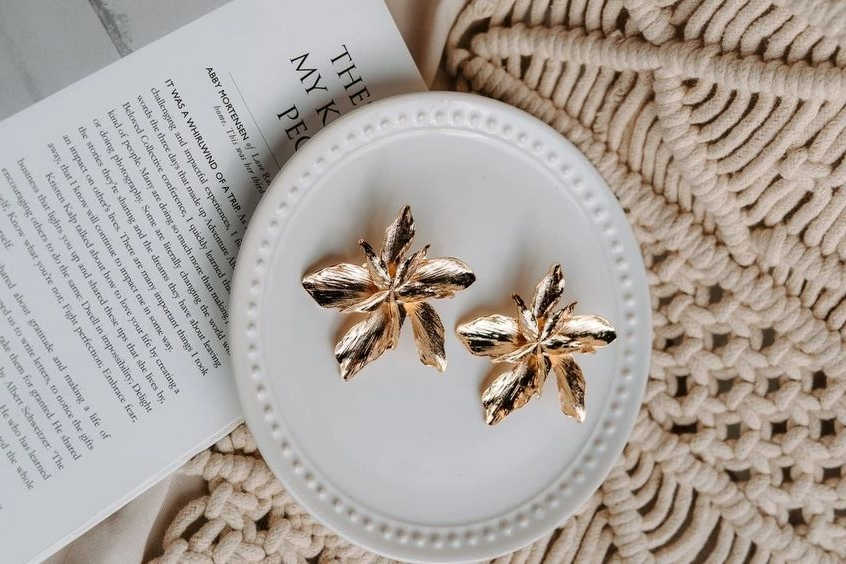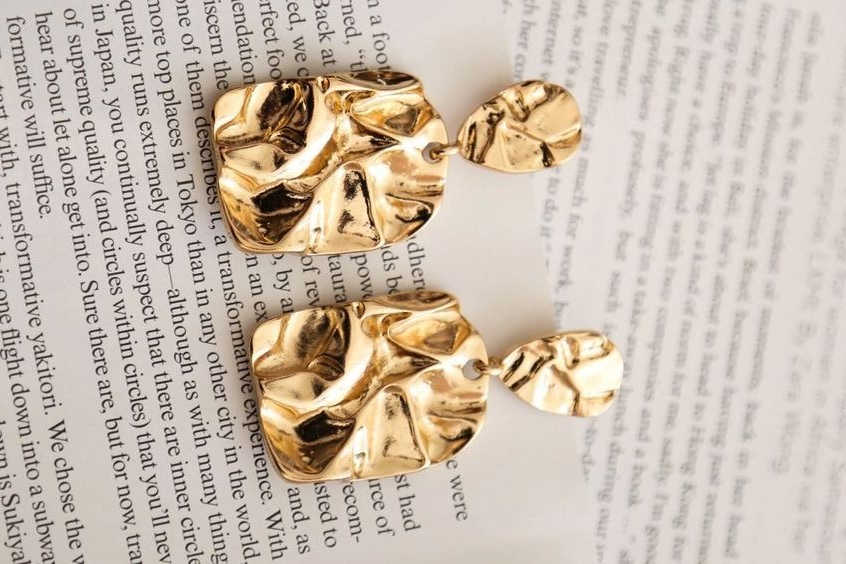Many people experience discomfort in their ears when they wear earrings. More so, if you have sensitive skin, you need to shop for jewelry made of safe metal that will not irritate or harm your skin. So, what are the best metals for sensitive ears?
Earrings are fun, exciting, and trendy statements available for both men and women. They make a world of difference when paired with your outfit for that elegant and put-together look as you step out of your house. For some people, buying earrings is a daunting task because of their sensitive ears.
The last thing you want to do is aggravate your ear lobes by wearing unsafe metals, causing redness, itching, and in extreme cases, bleeding. This article aims to provide insight into some of the best metals for sensitive ears.
What causes sensitive ears?
Usually, sensitive ears are as a result of wearing earrings that cause an allergic reaction to your skin. Several people are allergic to metals like cobalt and nickel since they are in most industrial jewelry pieces available in the market. Similarly, a lot of cheap and costume earrings found in local stores contain nickel. Some precious metal earrings, such as those made from silver and gold, may also have nickel, causing allergic skin reactions.
Nickel and cobalt are common in making jewelry because it makes weaker metals stronger and lightens their color. Metals like silver and gold are too soft in their natural form to create intricate and complicated designs. As a result, jewel manufacturers add nickel metal to make a metal alloy to increase their tensile strength and durability.
Some signs and symptoms of sensitive ears include redness, crustiness, swelling, itchiness, yellow pus-like discharge, pain, and bleeding when putting on certain types of metal earrings. It is advisable to practice selectiveness when choosing the type of metals your earrings consist of to avoid such reactions.
What are hypoallergenic metals in earrings?
If you are the type to get irritation or itchiness when wearing certain types of earrings, you should be careful of the materials used to make earrings. Luckily, there are a variety of hypoallergenic metals used in making earrings, guaranteed to rid you of your sensitive ear situation.
Hypoallergenic metals mean those metals used in manufacturing earrings and other pieces of jewelry which are less likely to cause an allergic reaction. However, there is no standard brand that makes hypoallergenic jewelry or a standardized set of rules to regulate these jewelry makers.
It is only in the European Union that there exist restrictions against using nickel in making jewelry. However, jewelry imported to and sold in North America does not have to meet these standards. In California, there is a Metal-Containing Jewelry Law that regulates the manufacture of jewelry by restricting the use of lead and cadmium, but not nickel.
As a result, manufacturers may make jewelry from nickel and coat it with hypoallergenic material. Therefore, do not assume a product marked as ‘hypoallergenic’ is allergy-free. It is vital to know the exact metal used in making a particular set of earrings to prevent skin irritation.
The best metals or materials for sensitive ears
The following metals and materials have a low-allergic reaction rate to sensitive ears. However, some people may still experience some allergic reactions to them. Therefore, it is best to try out a couple of them to find your perfect fit.
- High-Karat Gold
Gold is one of the best hypoallergenic metals used in the making of earrings. Unfortunately, there are different levels of gold that may cause sensitive ears depending on your allergies. The lower the amounts of gold metal in your earrings, the higher the chances you will experience sensitive ears.
When buying hypoallergenic earrings made from gold, look for 14K Gold earrings and above. 24K Gold earrings are too soft as well as very expensive. As a result, they may not be as durable as their lower counterparts.
It is also crucial to keep in mind that ‘gold-plated’ is not similar to solid gold. Gold-plated earrings can easily rub off or wear out after frequent use, revealing a lower quality metal below it that could possibly cause an allergic reaction in your ears.
- Sterling silver
Silver metal does not cause allergic reactions. However, just like 24K Gold earrings, pure silver earrings (99.9% purity) are quite soft and not durable. As a result, jewel manufacturers use sterling silver; a metal alloy made of 92.5% silver and 7.5% of other metals like copper and nickel.
Unfortunately, these traces of nickel may still cause an allergic reaction to some people. If you are extremely allergic to nickel, it is best to ask your jeweler what other metal exists in the sterling silver earring apart from silver.
- Titanium
Titanium is a durable and lightweight metal that is an excellent choice for people with nickel allergies. Jewel manufacturers opt to use titanium as approximately 4% of the population is allergic to it. Titanium earrings are comfortable to wear, strong, and light on the ear. It is best to opt for titanium earrings that are medical grade, commercially pure, or implant grade.
- Surgical stainless steel
Surgical stainless steel (SSS) earrings are an excellent alternative for gold and platinum earrings. SSS refers to a variety of corrosion-resistant metals combined. It comes at an affordable price for those with sensitive ears. This metal is a wonderful choice for body implants as well as body piercings.
However, there are many stainless steel alloys used in making earrings, some of which may contain nickel. Many cosmetic experts recommend grades 316L and 316LVM as some of the best options for sensitive ears.
- Niobium
Niobium is a chemical element that can be manipulated to make jewelry. It is just as durable and robust as surgical stainless steel and titanium. It is a popular element used in jewelry and medical implants. This element can also be anodized, allowing it to make numerous innovative designs of different colors. Unfortunately, niobium is not a mainstream element as many other metals in this list; hence, it may be difficult to find earrings made from it.
- Plastic
Another valid and inexpensive option for people with sensitive ears is wearing plastic earrings. If you are allergic to metals, earrings made from polymers such as plastic, acrylic, or silicone, are excellent options. Acrylic and plastic earrings are more rigid than those made from silicone. However, keep in mind that such earrings may look cheap and have limited designs.
- Wood
Many people would think of wood as an alternative for sensitive ears. However, wood is one of the most durable and strong materials used in making earrings. It does not affect your ear piercings, nor does it cause any known allergic reactions. Be careful to choose wooden earrings whose post is wooden when buying a pair.
Metals and materials you should avoid for sensitive ears
- Nickel
Most sensitive ear reactions are as a result of exposure to nickel. Many jewel manufacturers use nickel to increase the tensile strength of malleable and expensive metals, such as silver and gold. It is also a highly durable white metal, in that it is not easy to differentiate it from gold or sterling silver alloys. When choosing a pair of earrings, make sure the part of the earring that goes into your ear consists of allergy-free material.
- Plated metals
Many sellers market gold-plated or vermeil earrings as genuine hypoallergenic metal earrings to confuse the consumer. Often, such earrings cause allergic reactions as their base metals may include cobalt or nickel. Once the plated material wears off after continuous wear, these non-hypoallergenic metals come into contact with your skin, causing inflammation and irritation.
Acute or short-term ear sensitivity
Often, this condition is as a result of bacterial infection in your ear piercings. When you handle your earrings and piercings with unwashed hands, you expose that area to dirt, which causes infections. Bacterial infections lead to redness, swelling, and a throbbing sensation of the infected area. The infected area may also contain pus.
Regularly, swab the infected area with antiseptic for it to clear up within several days. If the condition persists, seek treatment from a medical doctor, who may advise you to start taking antibiotics. When you have a new ear piercing, use a saline solution or distilled water mixed with salt, to avoid infections.
Long-term or Chronic ear sensitivity
Long-term or chronic skin sensitivity is a type of contact dermatitis. It causes itching, redness, swelling, and localized skin irritation. The most common metal to cause this condition is nickel, giving rise to its popular name ‘nickel itch.’
Nickel is usually in cheap jewelry and earrings. One way to prevent this condition is by wearing earrings that have posts made of non-nickel material. You may also opt to put a protective barrier, like nail enamel, between the allergen and your skin.
How to wear earrings without causing sensitive ears?
You might not be ready to get rid of your favorite set of earrings that may contain nickel or another skin irritant. Here are some useful tips to make those skin-irritating earrings wearable.
The clear nail polish trick
An easy solution to make your cheap earrings wearable is by using clear nail polish. Coat the earring posts with about two or three layers of clear nail polish and allow it to dry thoroughly. The nail polish creates a protective buffer between your sensitive ears and the harmful metal. You may also opt to ask a professional jeweler to use jewelry sealant that prevents allergies. Reapply a clear nail polish coat after every week or so, to prevent it from wearing off.
Use Vaseline
The use of Vaseline is another trick that works for many people with a favorite pair of cheap earrings. Rub any brand of petroleum jelly on the metal parts of the earrings that come into contact with your skin. Similar to clear nail polish, this forms a protective barrier for your skin. However, when it comes to Vaseline, you will need to reapply it after every few hours, which can become a bit annoying.
Clean your earrings with hydrogen peroxide
Another effective way of preventing sensitive ears is to clean your cheap earrings with hydrogen peroxide to kill bacteria from their surface. However, you still have to coat them with Vaseline or clear nail varnish to prevent the metal from coming into contact with your skin.
Conclusion
In today’s society, it is quite common to have sensitive ears. You can avoid skin irritation and ear infections by choosing the best metals for sensitive ears. Always opt for hypoallergenic metals for your sensitive ears.
It is advisable to buy high-quality earrings to avoid any risks. However, do not forget that no metal or jeweler can guarantee allergy-free jewelry. Some people are allergic to titanium, while others are not. Luckily, by using the tips and knowledge in this article, you are sure to have sensitive-free ears in no time.
Ten articles before and after
What Is The Best Jewelry For Nose Piercing?
11 Best Jewelry Brands on Amazon That Save You Money
7 Best Hypoallergenic Nipple Rings You Should Try
Which Country Has The Best Gold Jewelry?
10 Best Fake Hip Hop Jewelry Sites You can Trust
5 Best Mouthwash Brands For Tongue Piercing in 2021
What is the Best Necklace Length for a Large Bust?
10 Best Places to Buy Body Jewelry Online in 2021
Best Place to Buy Earrings for Sensitive Ears in 2021
10 Best Places to Buy Ribbon for Hair Bows(Affordable Price)
